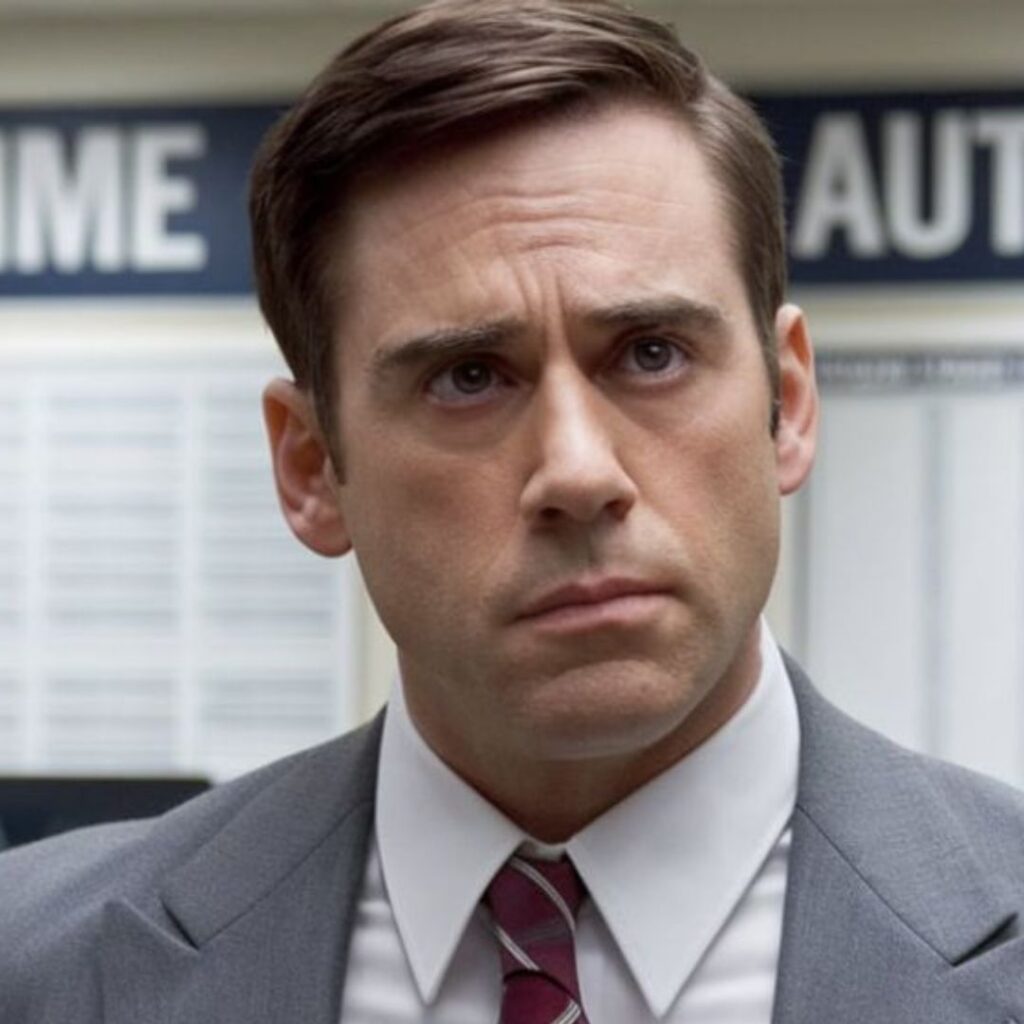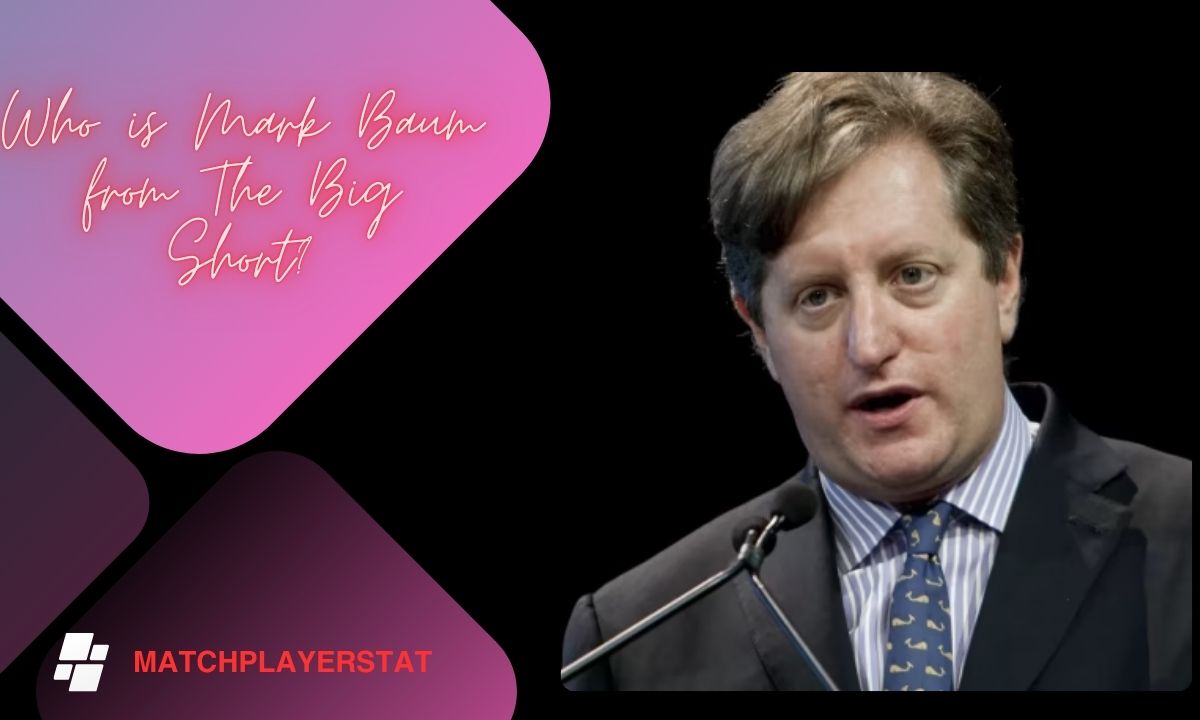Mark Baum is a pivotal character in the 2015 film The Big Short, which brilliantly encapsulates the events leading to the 2008 financial crisis.
Portrayed by Steve Carell, Baum is depicted as a hedge fund manager who saw the impending collapse of the housing market when few others did.
His character embodies a blend of brashness and insight, making him one of the most memorable figures in the narrative.
Profile Summary
| Attribute | Details |
|---|---|
| Character Name | Mark Baum |
| Portrayed by | Steve Carell |
| Based on | Steve Eisman |
| Occupation | Hedge Fund Manager |
| Key Company | FrontPoint Partners LLC |
| Notable Traits | Blunt, analytical, moral outrage |
| Key Actions | Predicted housing market collapse, shorted subprime mortgages |
| Significant Insights | Identified flaws in mortgage quality and rating agencies |
| Film Release Date | December 2015 |
| Awards | Academy Award for Best Adapted Screenplay |
| Impact | Raised awareness about financial risks and systemic failures |
The Big Short: A Quick Recap

The Big Short is based on Michael Lewis’s non-fiction book, which details how a few savvy investors predicted and profited from the financial meltdown. The film features a star-studded cast, including Christian Bale, Ryan Gosling, and Brad Pitt. It cleverly explains complex financial concepts, making them accessible to a wider audience.
The movie unfolds the story of how subprime mortgages and collateralized debt obligations (CDOs) led to a catastrophic failure in the financial system. It shows the stark contrast between the investors who recognized the warning signs and those who remained oblivious. The film’s success is underscored by its box office gross of $133 million and an Academy Award for Best Adapted Screenplay.
Is Mark Baum Based on a Real Person?
Yes, Mark Baum is based on the real-life figure Steve Eisman. Eisman was a hedge fund manager who gained notoriety for his predictions about the housing market’s instability. He requested that his name be changed for the film adaptation, resulting in the creation of the Mark Baum character.
The essence of Baum’s character reflects Eisman’s experiences and insights during the financial crisis. Like Baum, Eisman was a vocal critic of the financial system, challenging conventional wisdom. His story is a testament to the importance of questioning the status quo in finance.
Who is the Real Mark Baum? Steve Eisman’s Background

Steve Eisman’s journey to becoming a prominent financial figure began in New York City. His educational background is impressive:
- Bachelor of Arts from the University of Pennsylvania
- Law degree from Harvard Law School
Despite his legal training, Eisman gravitated towards finance. He held several notable positions, including roles at:
- Oppenheimer & Co. as a financial services analyst
- Chilton Investment Co. as managing director and senior financial services analyst
- FrontPoint Partners LLC as a portfolio manager
At FrontPoint, Eisman managed over $1 billion and became known for his bearish stance on subprime mortgages, which set the stage for his significant profits during the crisis.
What Was Mark Baum’s Role in The Big Short?
In The Big Short, Mark Baum plays a crucial role in uncovering the truth about the subprime mortgage crisis. His key actions include:
- Investigating the Housing Market: Baum conducts thorough research, uncovering widespread fraud in the subprime mortgage sector. His findings reveal the systemic issues that many in the industry chose to ignore.
- Shorting CDOs: Armed with his research, he takes substantial short positions on CDOs linked to subprime mortgages. This strategy allows him to profit immensely when the market collapses.
- Warning Others: Baum attempts to alert other investors and financial institutions about the impending crisis. His warnings often meet with skepticism, highlighting the disconnect between his insights and the prevailing mindset on Wall Street.
Baum’s character showcases the moral outrage and frustration of those who saw the crisis coming while others dismissed it.
Steve Eisman’s Crucial Predictions

Steve Eisman’s analysis of the housing market was strikingly accurate. His predictions included:
- Declining Mortgage Quality: Eisman recognized that the quality of mortgages was deteriorating significantly. Many loans were being issued to borrowers who could not afford them.
- Flaws in Ratings: He identified major flaws in how rating agencies evaluated mortgage-backed securities. These flaws contributed to the overvaluation of these financial products.
- Interconnectedness of Institutions: Eisman predicted that the interconnected nature of financial institutions would exacerbate the crisis, leading to a domino effect in the economy.
Despite his accurate predictions, Eisman faced disbelief and ridicule from many of his peers, a theme that resonates throughout The Big Short.
Also SEE THIS: How Old Is Chrisean Rock? Key Facts About Her!
How Accurate is Steve Carell’s Portrayal of Steve Eisman?
Steve Carell’s portrayal of Mark Baum has been lauded for its authenticity. Carell captures several key traits of Eisman’s personality:
- Bluntness: Carell’s portrayal emphasizes Baum’s direct and often abrasive communication style. This characteristic reflects Eisman’s real-life persona.
- Moral Outrage: The film depicts Baum’s anger at the systemic failures in the financial system, which mirrors Eisman’s own frustrations.
- Analytical Mind: Baum’s ability to dissect complex financial issues and reveal underlying truths is a central aspect of Carell’s performance.
Eisman himself has acknowledged the accuracy of Carell’s portrayal, stating that while some dramatization occurred, many core personality traits were faithfully represented.
The Aftermath: What Has Steve Eisman Done Since The Big Short?
Following the events depicted in The Big Short, Steve Eisman’s career has seen several developments:
- Departure from FrontPoint Partners: Eisman left FrontPoint in 2011, after the fallout from the financial crisis.
- Founding Emrys Partners: In 2012, he established his own hedge fund, Emrys Partners, with initial seed capital of $23 million. However, the fund struggled to perform and was closed in 2014.
- Joining Neuberger Berman: Eisman then joined Neuberger Berman as a managing director and senior portfolio manager. He has since remained active in financial markets, sharing his insights and critiques.
Eisman continues to be a prominent voice in discussions about financial regulation and market dynamics.
How Much Did Mark Baum (Steve Eisman) Make from The Big Short?

While exact figures are not publicly disclosed, estimates suggest that Steve Eisman made hundreds of millions by shorting the housing market. His hedge fund, FrontPoint Partners, saw significant growth during the crisis:
- Assets Under Management: FrontPoint’s assets increased from about $700 million to $1.5 billion during the crisis.
- High Returns: Eisman’s fund reportedly achieved an 81% return in 2007 alone, a staggering figure that underscores his successful predictions.
However, these profits came at the expense of many Americans facing financial devastation, raising ethical questions about profiting from a crisis.
“Even on Wall Street people think he’s rude and obnoxious and aggressive,” – Valerie Feigen (Eisman’s wife)
What Happened to Mark (Steve Eisman) After The Big Short?
In the years after The Big Short, Steve Eisman has continued to evolve in his career:
- Continued Work in Finance: He has remained active in the financial sector, albeit with mixed success in various ventures.
- Public Speaking and Commentary: Eisman has become a sought-after speaker and commentator, sharing insights on market trends and risks.
- Advocacy for Regulation: He has advocated for stronger financial regulations to prevent future crises, drawing from his experiences during the 2008 meltdown.
Eisman has also raised alarms about potential risks in the current financial landscape, including concerns about passive investing and emerging market vulnerabilities.
The Legacy of Mark Baum and Steve Eisman

The impact of Steve Eisman, represented as Mark Baum in The Big Short, extends beyond his personal financial success:
- Regulatory Changes: Eisman’s warnings and subsequent vindication contributed to the push for stronger financial regulations, such as the Dodd-Frank Wall Street Reform and Consumer Protection Act.
- Public Awareness: His story, highlighted in both the book and film, has educated the public about the complexities and risks in the financial system.
- Ethical Discussions: Eisman’s outspoken criticism of Wall Street practices has fueled ongoing debates about ethics and responsibility within the financial industry.
Eisman’s legacy serves as a reminder of the importance of vigilance and ethical considerations in finance.
Conclusion
Mark Baum, inspired by Steve Eisman, is a significant figure in understanding the 2008 financial crisis. Through his insightful analysis and willingness to challenge the norms of Wall Street, Eisman not only profited from the crisis but also played a crucial role in exposing the systemic failures that led to it.
The story of Mark Baum and Steve Eisman highlights the need for critical thinking and the courage to stand against the crowd in the complex world of finance. As we navigate new economic challenges, the lessons from Eisman’s experience remain relevant, emphasizing the importance of ethical considerations in our financial systems.
Frequently Asked Questions
Who is Mark Baum in The Big Short?
Mark Baum, portrayed by Steve Carell, is based on Steve Eisman, a hedge fund manager who predicted the 2008 financial crisis.
Is Mark Baum a real person?
Yes, he is based on Steve Eisman, who played a significant role in exposing the flaws in the financial system before the crisis.
What did Mark Baum do in The Big Short?
He investigated the housing market, shorted CDOs, and warned others about the impending financial crisis.
How accurate is Steve Carell’s portrayal of Steve Eisman?
Carell’s portrayal is considered accurate, capturing Eisman’s bluntness, moral outrage, and analytical mind.
What happened to Steve Eisman after The Big Short?
Eisman left FrontPoint Partners, founded Emrys Partners, and later joined Neuberger Berman, remaining active in finance and advocacy.

Akash is a talented content writer and digital marketer with expertise in SEO, social media management, and online marketing.












